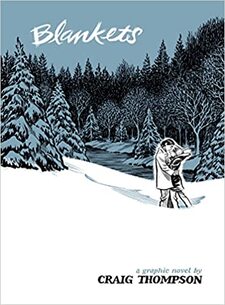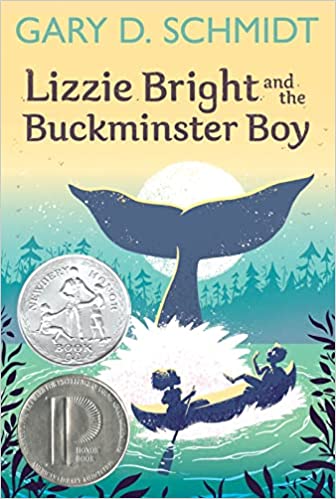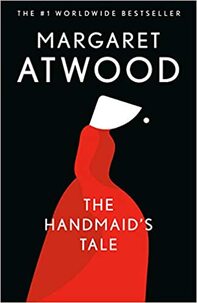| Dr. Gretchen Rumohr is Chief Curator of YA Wednesday. She serves as a professor of English and writing program administrator at Aquinas College, where she teaches writing and language arts methods. She is also a Co-Director of the Summit on the Research and Teaching of Young Adult Literature. She lives with her four girls and a five-pound Yorkshire Terrier in west Michigan. |
And generally I read well, making meaning as I read. I usually “live through” the text, as Louise Rosenblatt would desire. Employing Jeffrey Wilhelm’s evocative, connective and reflective dimensions, I see the story world and its characters, fill in plot gaps to make sense of textual events, and feel myself “living” in the text. Wilhelm calls it “BEing the book.” In the thick of Atwood’s The Handmaid’s Tale, I caught myself at the grocery store, looking at all the printed labels, and thinking about what they would look like in that particular story world--all pictures, no words. When reading Lizzie Bright and the Buckminster Boy in the middle of a bitter winter, I basked in the sun that Gary Schmidt created for me, rereading passages that reminded me of the twinkling sea, hot sand beneath my toes, and a salty ocean breeze. Craig Thompson’s graphic novel, Blankets, prompted memories of awakening and experimentation in my youth. I was, in effect, “shaping” each text, just as Rosenblatt would suggest, “draw[ing]on our reservoir of past experience with people and world...participat[ing] in the story…identify[ing] with the characters... [and] shar[ing]their conflicts and feelings (Morawski and Gilbert 11).
Here are a few ways that I’ve encouraged processing time and opportunities to reach out for help:
1. Reading on their own terms. How do students read in our classrooms? Do we send them home with nightly reading homework (which I will never, ever, EVER recommend because students don’t really read when this happens)? Do we read together in class? Do we give time for silent reading (or reading with headphones and an audiobook) in class? Regardless, if we are processing a book together as a whole-class read, we need to be aware of the reading method and plan accordingly. If we’re reading as a whole class and come up on a triggering event, it might be time to give a quick warning, or allow a short break afterward, or give students an opportunity to write a bit or turn-and-talk. In other words, be aware of what’s being read, how it’s being read, and how you’re allowing time to think about what’s being read.
2. Responding on their own terms. How do students respond to literature in our classrooms? If students are considering literature that triggers them, they may feel out of control, unable to harness their emotions and reactions. In many ways, bringing a sense of control to the students in how they respond to literature can help. Consider a response assignment that prioritizes the student’s voice and choice. One example: when reading The Outsiders in class and focusing on the essential theme of “what makes a family,” students can curate a soundtrack for the book on that theme.
3. Choosing what’s next. If you are reading a more “triggering” text as a class, consider allowing students to choose their next book from your classroom library. Maybe they will choose a book on the same topic; maybe they will take a “brain break” and choose something completely different. The goal in this instance is to help students take ownership of their reading as well as their responses.
4.Critical witnessing. If a topic is personal to you–is triggering to you, too as the teacher–it’s ok for you to say so. I have never regretted sharing information about my own trauma when discussing relevant texts and topics. In doing so, we turn the classroom power dynamic upside-down, serving as counter-witnesses to each other’s experiences. For those of you interested in learning more about this idea, check out “Writing Wounded” by Elizabeth Dutro.
I have so much more to say about this topic–and don’t worry! I have more prepared for another day. But isn’t it wonderful when our students invest in what they read, bringing those story words to life in ways that become intensely personal to them? It is up to us to encourage that investment by also creating safe spaces for this literary exploration.





 RSS Feed
RSS Feed